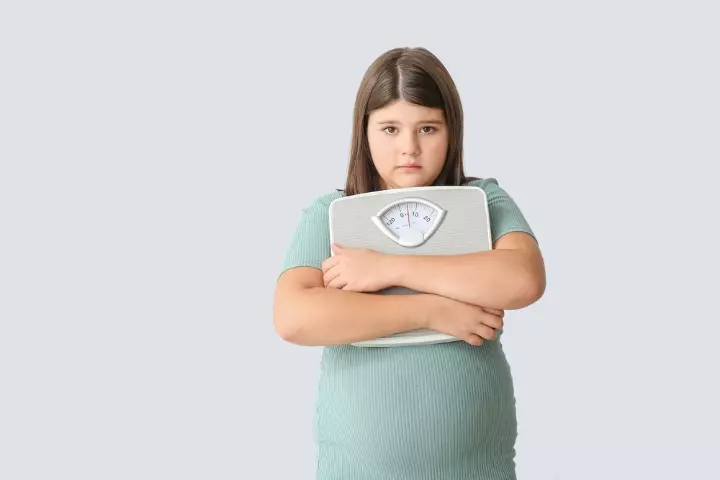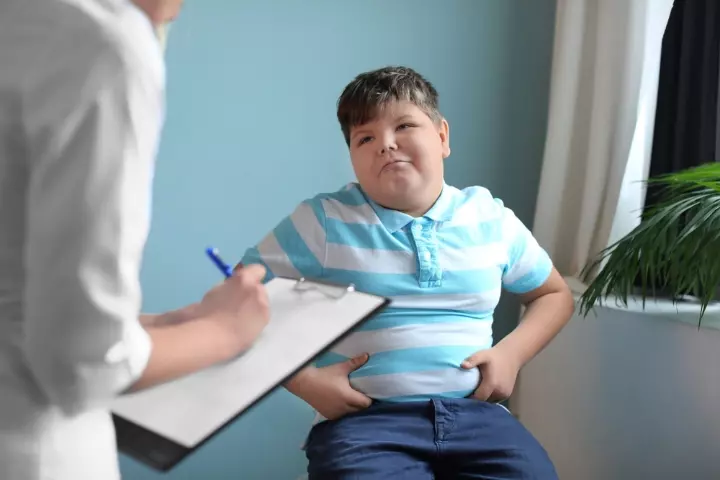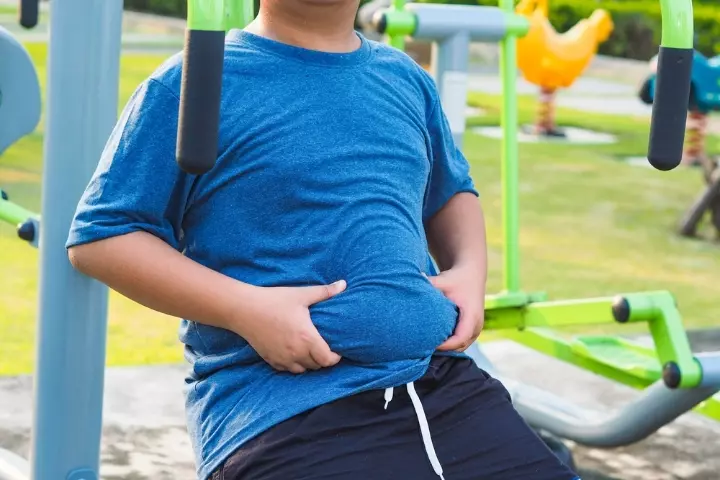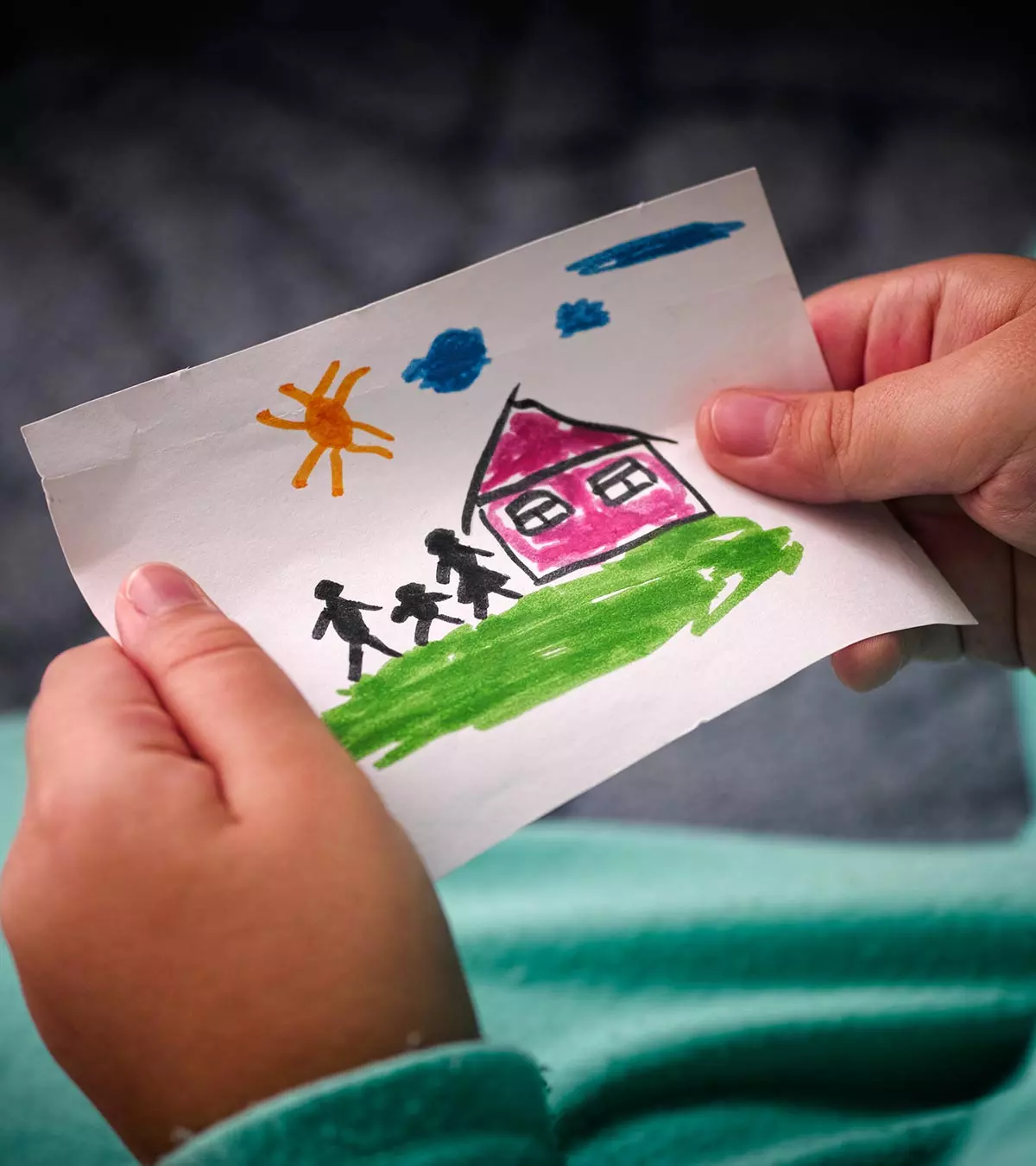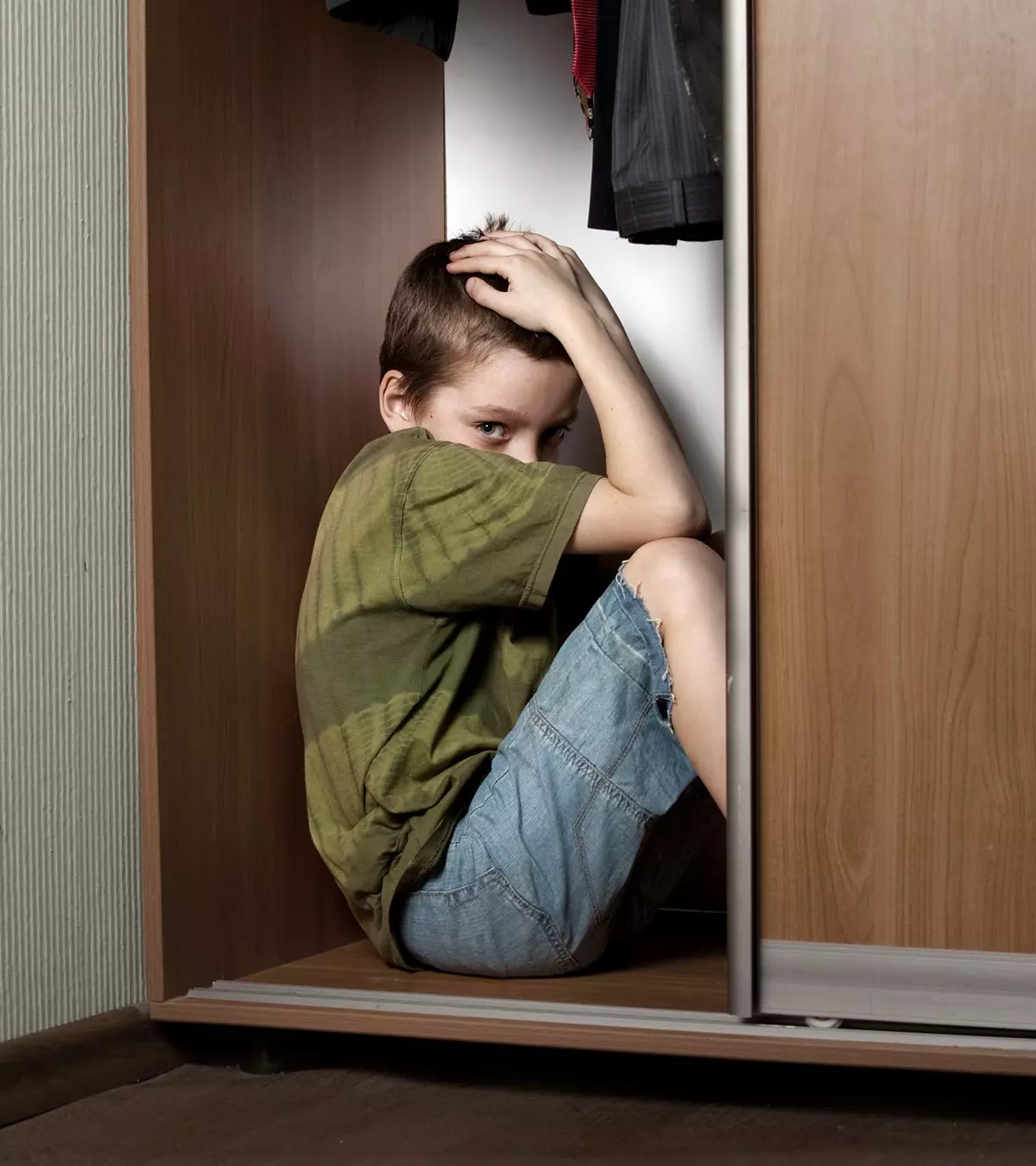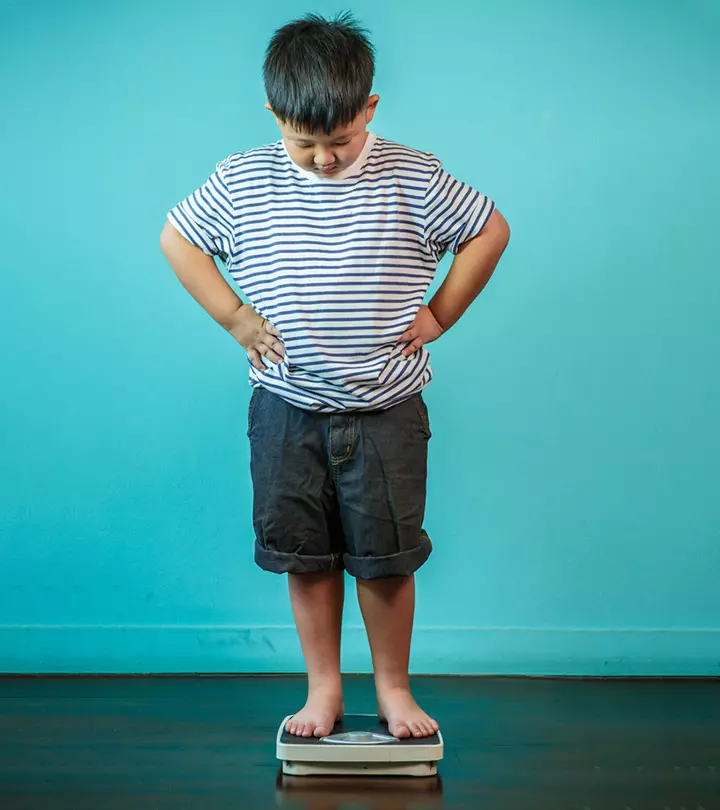

Image: Shutterstock
Childhood obesity is a growing concern worldwide, with millions of children struggling with excess body weight. While the physical health implications of childhood obesity are widely recognized, its impact on a child’s mental health is equally significant and often underestimated. In this article, we will explore what childhood obesity is, how it can affect a kid’s mental health, and how they can be helped. Read on!

What Is Childhood Obesity?
Childhood obesity refers to an excess of fat in children and adolescents. It is typically determined by measuring body mass index (BMI), which considers a child’s age and gender. A BMI at or above the 95th percentile for their age and gender is generally considered obese (1).
The Causes Of Childhood Obesity
Image: Shutterstock
Childhood obesity is a complex issue with multiple contributing factors. It’s not just about overeating and lack of physical activity. Genetics, environment, socioeconomic status, and dietary habits all play a role. In a society where processed foods and sugary drinks are readily available, children often find themselves exposed to unhealthy food choices. Moreover, limited access to safe play spaces and a sedentary lifestyle, partly due to excessive screen time, also contribute to the problem.
How Childhood Obesity Can Affect A Kid’s Mental Health
Image: Shutterstock
1. Self-Esteem And Body Image
Children with obesity often experience low self-esteem and body image issues. They may face teasing or bullying from their peers, which can lead to feelings of shame and embarrassment.
2. Depression And Anxiety
Childhood obesity has been linked to an increased risk of depression and anxiety in children (2). The social stigma associated with obesity, along with the psychological stress it brings, can lead to feelings of sadness, hopelessness, and worry. This can interfere with their overall mental health and hinder their ability to cope with life’s challenges.
3. Social Isolation
Children with obesity might withdraw from social activities due to fear of teasing. This social isolation can hinder their social development. A lack of social support can exacerbate mental health issues.
4. Eating Disorders
While not all children with obesity develop eating disorders, there is an increased risk. Some children may develop unhealthy relationships with food, such as binge eating or emotional eating, as a coping mechanism for their emotional distress. This can further complicate their physical and mental health.
5. Academic Performance
Obesity can affect a child’s cognitive function and academic performance. Struggling in school can lead to frustration, decreased self-esteem, and feelings of inadequacy. These factors, in turn, contribute to mental health issues like stress and anxiety.
6. Reduced Quality Of Life
Children with obesity may face limitations in their daily activities and are more likely to experience health problems, such as asthma and sleep disorders (3). These limitations can have a significant impact on their overall quality of life and mental well-being.
The Role Of Parents And Caregivers
Image: Shutterstock
Parents and caregivers play a crucial role in addressing childhood obesity and its impact on a child’s mental health. Here are some ways they can support their children:
1. Foster A Positive Body Image
Encourage a healthy body image by emphasizing the importance of self-acceptance and self-worth regardless of size or appearance. Compliment your child on their abilities and character rather than their physical attributes.
2. Promote Healthy Eating Habits
Provide a balanced and nutritious diet for your child. Involve them in meal planning and preparation to teach them about healthy food choices. Avoid using food as a reward or punishment.
3. Encourage Physical Activity
Create opportunities for physical activity, and make it a fun family activity. Be a role model by participating in activities with your child, and limit screen time.
4. Open Communication
Keep lines of communication open with your child. Encourage them to share their feelings and concerns about their weight and any experiences of teasing or bullying. Let them know you are there to support and listen to them.
5. Seek Professional Help
If you are concerned about your child’s weight or their mental health, don’t hesitate to seek help from healthcare professionals. They can provide guidance on managing obesity and addressing mental health issues.
The Role Of Society
Image: Shutterstock
Society as a whole can contribute to addressing childhood obesity and its impact on mental health:
1. Promote Healthier Environments
Communities can create safe spaces for children to play and be active, such as parks, sports facilities, and walking paths. Schools can also implement healthier food options in their cafeterias.
2. Combat Stigma
Efforts should be made to reduce the stigma associated with obesity. Schools and organizations can implement anti-bullying programs and promote inclusivity and empathy among students.
Childhood obesity is a complex issue that goes beyond physical health concerns. To address this problem effectively, parents, caregivers, and society must work together to promote healthier environments,and provide the necessary support and education. By taking a holistic approach to childhood obesity, we can help children not only achieve a healthier weight but also foster positive mental health and well-being.
Childhood Obesity’s Impact on Kids’ Mental Health
Watch this video to explore how childhood obesity affects kids’ mental health. Discover the causes, emotional impacts, and actionable tips for parents to support positive self-esteem and well-being. Watch now!
Community Experiences
Join the conversation and become a part of our nurturing community! Share your stories, experiences, and insights to connect with fellow parents.

